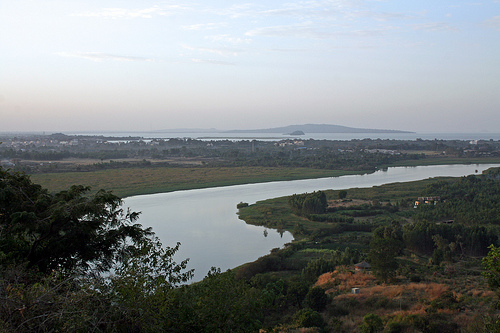In the face of sluggish global growth, increased economic nationalism, trade wars, high debt levels and a roll-back in globalisation, investors could be forgiven for being bearish on Egypt. But they shouldn’t be, for three good reasons.
First: Egypt’s near neighbours and allies in the Gulf are changing the models of their economies. The old model of exporting oil and living on the income is over. Saudi particularly is restructuring and rebalancing to create a more sustainable combination of industry, finance and services. So, to one extent or another, are all the Gulf countries. As these economies move towards normalisation, they will understand the vital importance of regional trade and investment. MENA regional trade has the lowest economic share of any region – with no logistical or geographic reason. There is huge potential for growth now the political will is there.
Second: global trade and investment is yesterday’s game. The three decades from 1990 will be seen as the highpoint of globalisation as an economic trend. The rise of China and capital flow and trade liberalisation created a one-off opportunity for companies and financial institutions to globalise. The financial crisis put paid to the global ambitions of many financial institutions and the political turmoil, driven in part by offshoring and production relocation made the continuation of that trend unacceptable to policy-makers in the West (it never really was acceptable elsewhere). Now the focus is on adding value in the domestic economy and very selectively operating businesses in other markets where the profit opportunity of that market is clear. Producing to export is still important – but the trend is towards localisation. This further supports Egypt’s opportunity in regional trade. Tariffs and quotas internationally will reduce competition in some of Egypt’s export markets and it can take advantage of its preferential and politically neutral agreements with major economies everywhere. So far Egypt has managed to maintain good relations with all trading blocs: US, China, EU and Russia. It should continue to do so.
Third: the diversified nature of Egypt’s economy, its size and its population make it uniquely attractive as a destination for FDI in an FDI-challenged world. We’re seeing daily news of new FDI into Egypt, new support and financing from multilateral and regional institutions and the announcement of new initiatives. Whilst Egypt needs to maintain its strategic relationships with its allies and partners – it can be pleased that its structural characteristics make it fundamentally an attractive destination compared with its peers.
However, a note of caution. Egypt can be, to foreign investors, a challenging place to do business. The World Bank’s Ease of Doing Business report lists Egypt at number 120 out of 190 countries. Any foreigner who has done or is trying to do business in Egypt knows this. The policies may be encouraging but the implementation needs to be streamlined. Large companies supported by multilateral in capital-intensive sectors can manage this task. SME investors in employment producing sectors such as services and technology – will find this a bit more difficult. Egypt understands that, to capitalise on the unique opportunity it faces, it needs to step up its game. The rewards will be worth it.
Richard Banks is consulting editor to Euromoney Conferences, the opinions in this article are his own.



